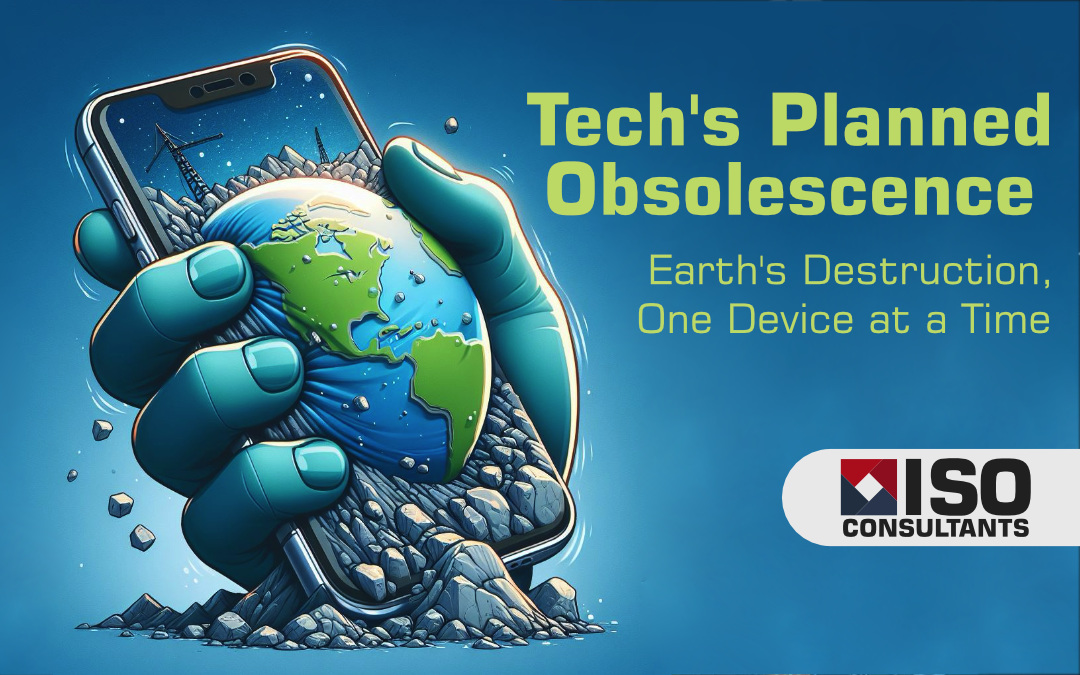I bought an iPad for my wife. At the time, you couldn’t play Candy-Crush on an Apple device, so it lay in our bedroom untouched for months. Eventually, I took pity on it, loaded up Kindle, and it became my portable Library. It worked well, had a good enough battery life, and convinced me that I should give an iPhone a chance at some point.
Then, almost the next minute in my aging mind it had its seventh birthday. Over in California some Apple marketeer had decided it was time I bought another device. So they stopped supporting the software, and over a few weeks each app, and its operating system began to fail. The device can still be turned on, it still has a good battery life, but because no software will run on it; its only remaining use is being a paperweight.
Apple publicise very little about what’s inside an iPad, we know it has a Lithium-Ion battery, but the other rare minerals extracted from strange, exotic and often war-torn areas of the world remain a mystery. BUT, I’m not particularly against Apple, take a look at the links below and you’ll see the havoc caused throughout the world by all the big manufacturers of electronic devices:

But what’s the answer? Modern societies around the world would struggle to survive without electronics, and personally I think it unlikely that we’d willingly return to pre-industrial lifestyles. So there must be something that can be done?
Space Programmes
The current space race is almost certainly being driven by the need for minerals which are rare on earth, and the participants in that race are quite surprising.
But if something is rare, shouldn’t we be using what we have to the maximum before seeking more?
Forcing the purchase of new goods by manipulating the software, mandating millions of tons of working devices to be scrapped seems to me to be a huge waste.
Obtaining the necessary minerals has a huge and often irreparable environmental cost to the planet. If we accept that modern society can’t be sustained without the benefits these technologies provide, then surely, we should atleast use them for their maximum life span? Not allow some profit hungry company to build in automated obsolescence.
Also, if it’s not the planned obsolescence that makes your hardware unusable then it’s also the lack of replacement parts and lack of technical specs being supplied to approved repair companies. This is why you should also make yourself aware of the Right to Repair movements happening across the UK, US and other places around the world. ( https://therestartproject.org/right-to-repair/ )
When all the worlds’ leaders gather at Climate Conferences and other high-powered meetings, aren’t these just the type of issues they should be addressing? Aren’t world leaders the only people that can make and enforce laws to stop this type of thing, and isn’t that the reason for such conferences?
Or are there other reasons?
COP 28 Climate Change Conference
Curious about sustainable practices and how ISO 14001 certification can make a difference? Whether it’s extending device lifespans or reducing waste, drop us a line.
Contact us HERE


